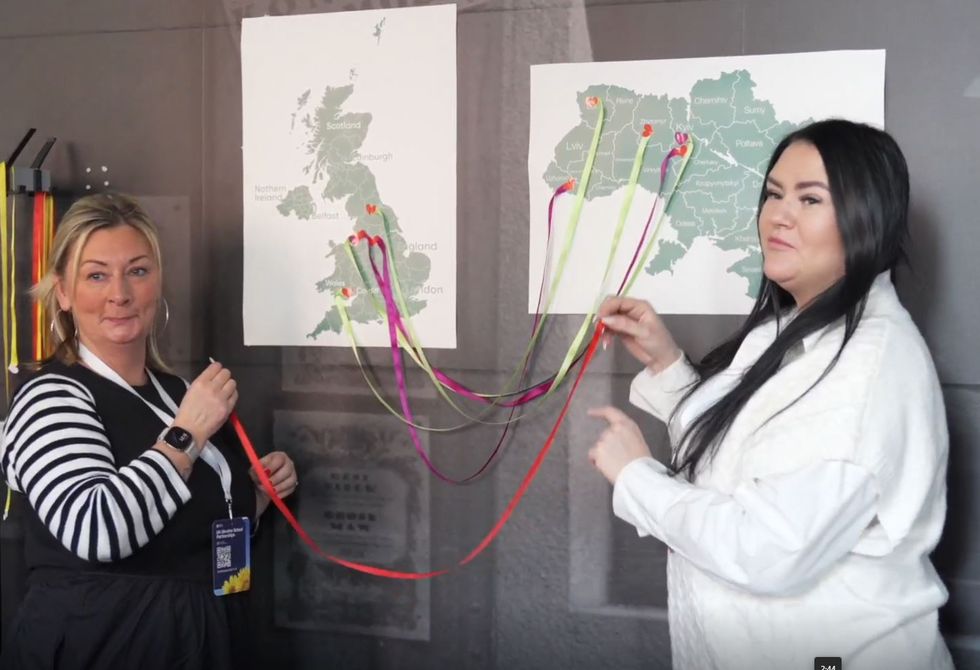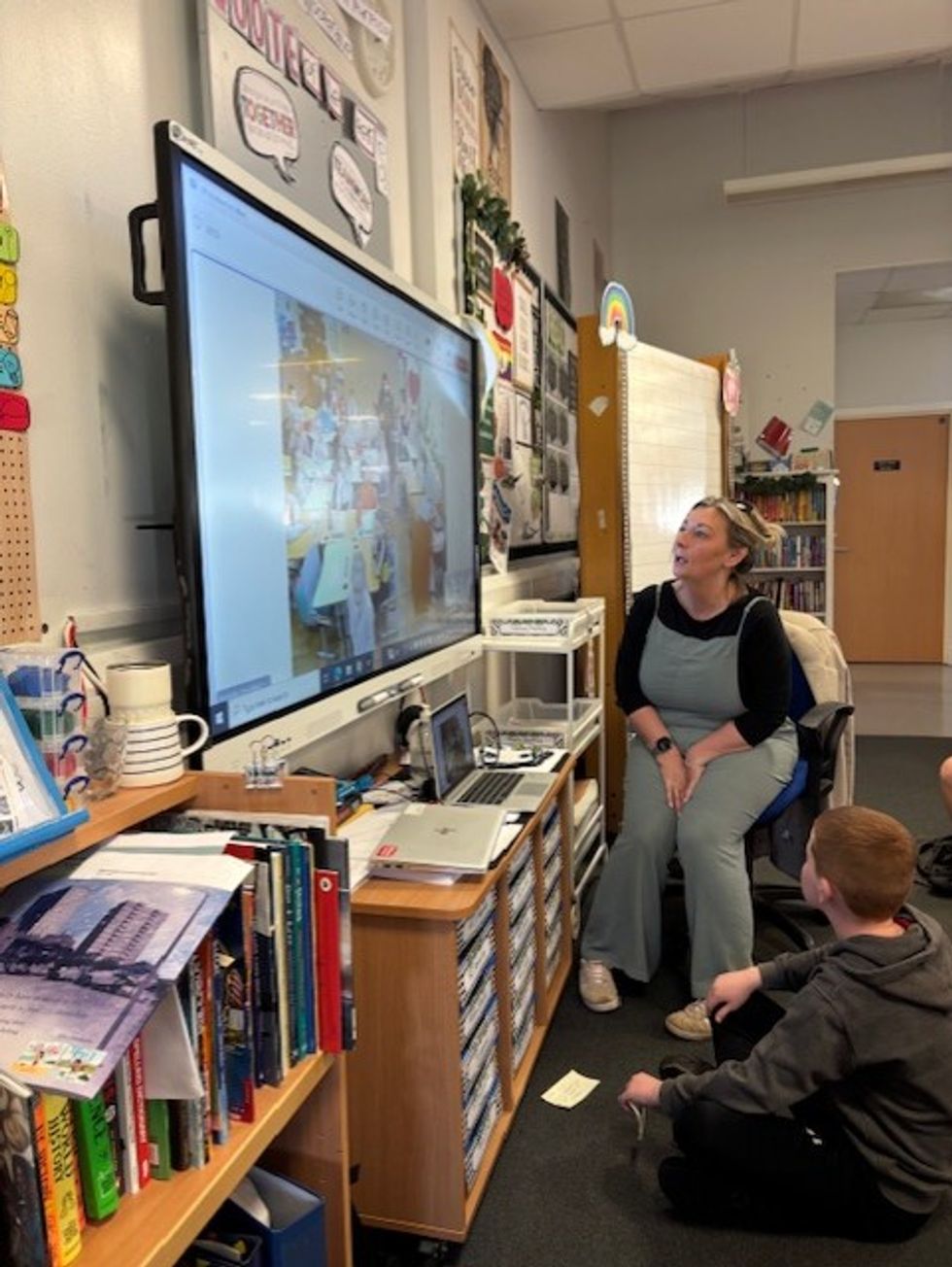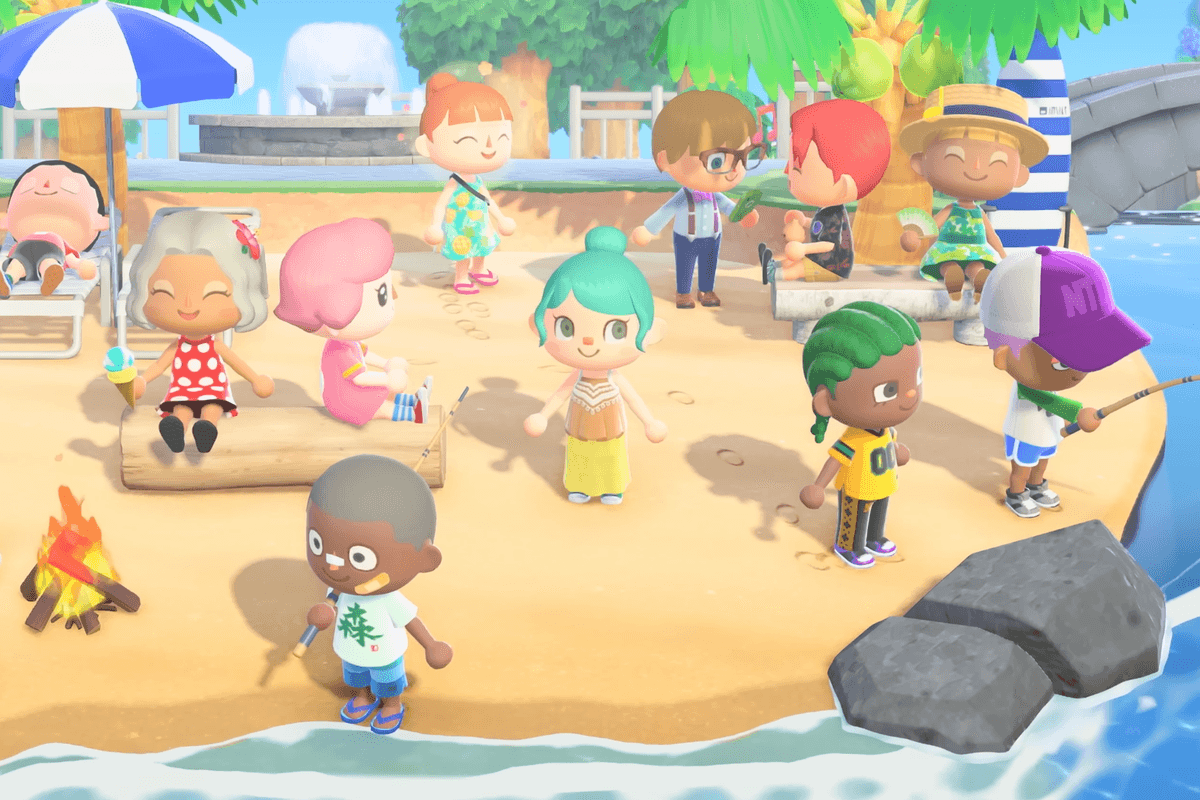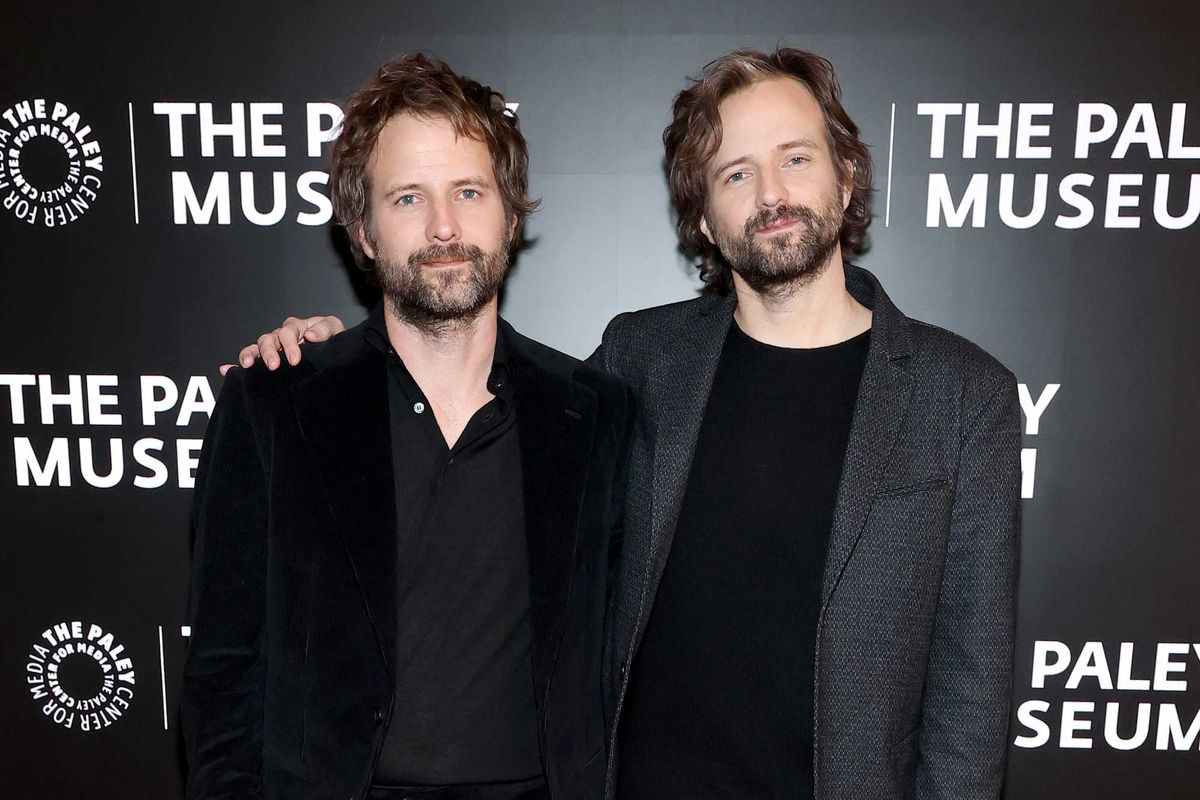
Primary school pupils have begun a partnership with other youngsters in Ukraine as part of a programme that uses literature to build friendships transcending borders.
Primary six pupils at Wishaw Academy Primary has taken on the UK Government-funded partnership, which draws on the pupils’ shared love of reading to foster cultural understanding and support emotional wellbeing.
It marks the first school in Scotland to take part – with four others in the country following suit.

Lyndsay Ellis, a primary six teacher at the school, said the programme aligns with the school’s existing “Rights Respecting” work.
She said: “It allows our children to pass on the joy they’ve found in books to someone else, while also giving them the chance to meet other people.
“Particularly with Ukraine, it ties in beautifully, as we’re discussing empathy, respect, resilience, and all those important values.”
The primary is collaborating with Ternopil Lyceum 21, an arts school in Ternopil, in western Ukraine.
It involves the pupils meeting once a week online, where they read and practice English together.
Ms Ellis travelled to Poland for training ahead of the programme’s launch in her class, where she met with fellow teacher Anzhelika Lishchenko – who teaches the Ukrainian class.
Ms Ellis said: “To actually sit face-to-face with someone who’s living in a war zone was really an eye-opener.
“We have no grasp of that working in schools in Scotland – what it means to be heading for a bunker every day and the trauma that must put their kids through.”
For the class, this connection gives them an idea that there's a wider world, but that despite the distance and what these kids are going through, they're still doing the same things, have the same hobbies and wishes for the future
Lyndsay Ellis, primary school teacher
She added: “When I came back from Poland, I gave them the letters received from the class in Ukraine – they were beautifully written and the children had drawn little pictures.
“My pupils had recorded introduction videos and the Ukrainian children responded with their own.
“While we had consciously avoided mentioning the war, several of the Ukrainian children mentioned it in their letters, which my class found really interesting.”
Over the past two months, the two classes have met regularly online, with teachers allowing students’ interests to shape their interactions.
Ms Ellis said: “The children were really blown away at finding somebody in the class who likes to cycle just like them, or boys who are really into football.
“For the class, this connection gives them an idea that there’s a wider world, but that despite the distance and what these kids are going through, they’re still doing the same things, have the same hobbies and wishes for the future.”
She hopes the pupils can eventually create collaborative reading projects using dual-language books, which feature the same stories in Ukrainian and English.
She said: “The plan is to create something tangible together, we’ll arrange for the Ukrainian pupils to read in their language and our pupils in English – letting them hear native speakers while creating something meaningful together.”
Building international connections at school can be very powerful during these times. For the teachers and pupils involved, the connection with Ukraine is providing invaluable real-world context for their work on developing characteristics like resilience, empathy, respect, and global citizenship
Peter Brown, British Council Scotland
Peter Brown, director of British Council Scotland, said: “This programme comes at a critical time when thousands of schools in Ukraine have been severely impacted by the ongoing conflict, with many children learning under difficult conditions and experiencing heightened anxiety and stress.
“Building international connections at school can be very powerful during these times.
“For the teachers and pupils involved, the connection with Ukraine is providing invaluable real-world context for their work on developing characteristics like resilience, empathy, respect, and global citizenship.”
To find out more about British Council Scotland’s work visit https://scotland.britishcouncil.org/ or follow on X, Facebook or Instagram.













